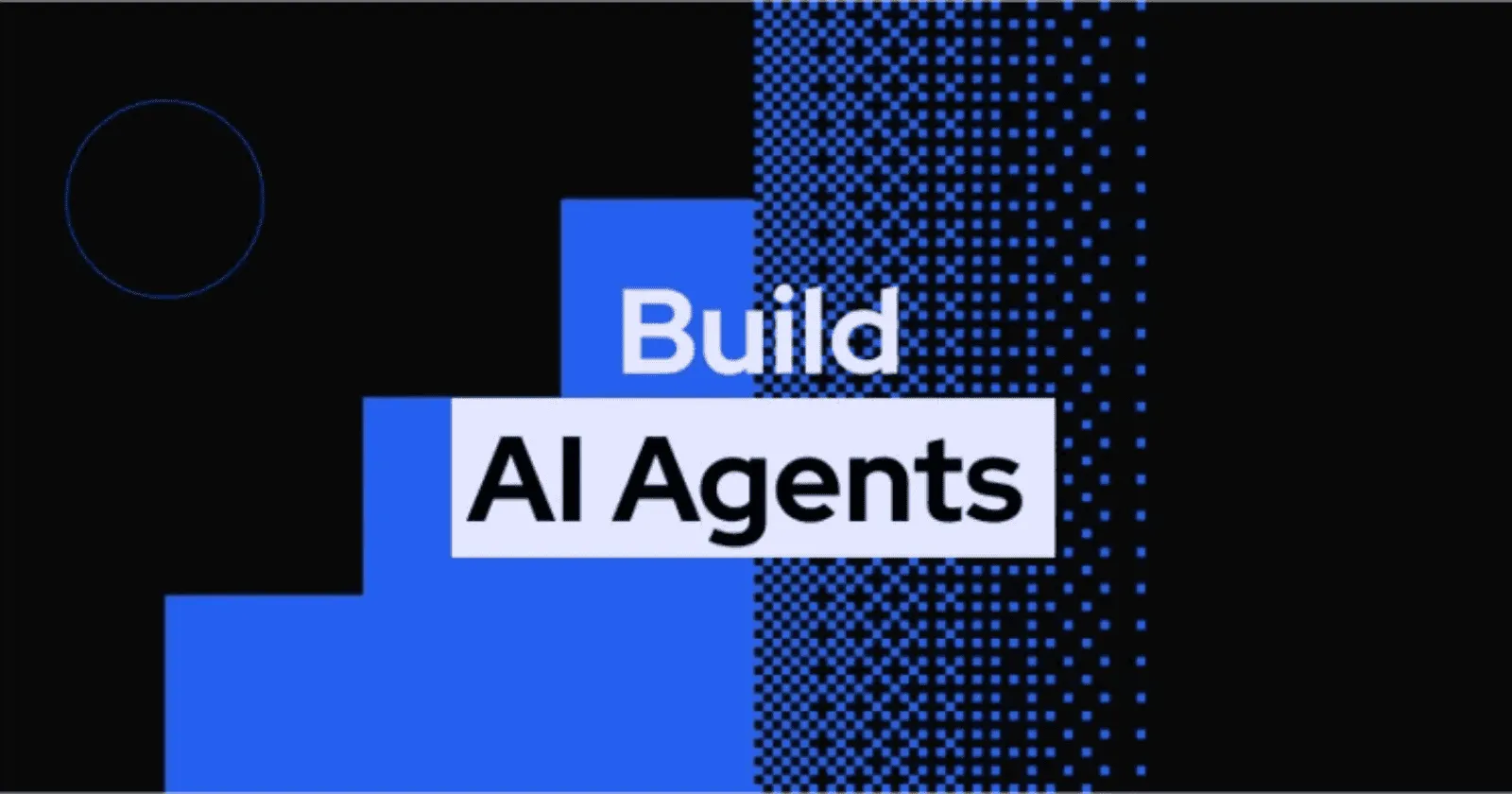How to Choose the Best AI Agent Platform for SMBs in 2025
According to the 2025 Salesforce Small Business AI Report, SMBs that implemented AI agent platforms increased employee productivity by an average of 37%, yet an alarming 68% of small business owners feel overwhelmed by the number of options available when choosing the right platform. This decision paralysis is costing small businesses valuable time and competitive advantage in today’s AI-driven marketplace.
Finding the ideal AI agent platform for your small business doesn’t have to be complicated. This comprehensive guide evaluates the top AI agent solutions based on real-world SMB needs, breaking down features, pricing, integration capabilities, and ROI potential so you can make a confident, informed choice that aligns with your specific business requirements and growth objectives.
Table of Contents
- What Is an AI Agent Platform?
- Why AI Agent Platforms Matter in 2025
- The SMB AI Revolution
- Key Benefits for Small Businesses
- Comparison of Top AI Agent Platforms for SMBs
- Detailed Platform Reviews
- Pros & Cons of AI Agent Platforms for SMBs
- Advantages
- Limitations
- Mitigating the Limitations
- Pricing & ROI Considerations
- Common Pricing Models
- Calculating ROI for Your Business
- Real-World ROI Examples
- How to Get Started
- 1. Assess Your Business Needs
- 2. Define Success Metrics
- 3. Evaluate Platform Options
- 4. Start with a Pilot Project
- 5. Scale Methodically
- Key Takeaways
- Frequently Asked Questions
- What size business benefits most from AI agent platforms?
- How long does it take to implement an AI agent platform?
- Do AI agent platforms require technical expertise to use?
- How do AI agent platforms handle data security concerns?
- Can AI agents replace human employees in small businesses?
What Is an AI Agent Platform?
An AI agent platform is a comprehensive software system that enables businesses to build, deploy, and manage intelligent virtual assistants that can autonomously perform complex tasks, make decisions, and interact with users and other systems. These platforms provide the infrastructure, tools, and capabilities to create AI agents that can handle customer service, automate workflows, analyze data, and execute multi-step processes with minimal human intervention.
AI agent platforms have evolved significantly in 2025, moving beyond simple chatbots to become genuine business partners capable of:
- Autonomous Decision-Making: Modern AI agents can evaluate complex situations and take appropriate actions
- Task Orchestration: Coordinating multiple systems and processes to complete business objectives
- Personalized Interactions: Adapting their responses and approach based on user history and preferences
- Continuous Learning: Improving performance over time through usage patterns and feedback
For SMBs, AI agent platforms represent a transformative opportunity to access enterprise-grade AI capabilities without the need for large technical teams or massive budgets.
Read also: No-Code AI Stacks: Zapier + Gumloop for Automated Reporting
Why AI Agent Platforms Matter in 2025
In today’s increasingly competitive business landscape, AI agents have become essential productivity multipliers for small and medium businesses. According to recent research from IBM, businesses utilizing AI agents have seen a reduction in customer service costs by up to 30% while simultaneously boosting customer satisfaction.
The SMB AI Revolution
The statistics paint a compelling picture of the AI agent adoption trend among SMBs in 2025:
- 42% of SMBs now use some form of AI agent platform (up from 17% in 2023)
- $75 billion in capital expenditure on AI research and development is projected for 2025
- 287% average ROI reported by SMBs within 18 months of implementing AI agent solutions
- 4.3 hours saved per employee per week through AI task automation
The accessibility of these platforms has democratized AI, allowing smaller businesses to compete with larger enterprises by automating routine tasks, enhancing customer experiences, and making data-driven decisions.
Key Benefits for Small Businesses
SMBs that have successfully implemented AI agent platforms report numerous advantages:
- Operational Efficiency: Automating routine tasks frees up human talent for higher-value activities
- Enhanced Customer Service: 24/7 support capabilities without proportional staffing costs
- Scalable Resources: Ability to handle variable workloads without hiring/firing cycles
- Competitive Intelligence: Better data analysis for market positioning and strategy
- Reduced Operational Costs: Lower overhead for routine business process
Read also: AI Newsletter Monetization: From 0 → $5k/mo
Comparison of Top AI Agent Platforms for SMBs
We’ve evaluated the leading AI agent platforms specifically from an SMB perspective, considering factors most relevant to smaller organizations: cost-effectiveness, ease of implementation, scalability, and ROI potential. Here’s how they stack up in 2025:
| Platform | Best For | Pricing Model | No-Code Support | Integration Complexity | SMB-Specific Features |
|---|---|---|---|---|---|
| Cognosys | Customer Service Automation | $250-750/mo | Excellent | Low | SMB templates, guided setup |
| Fixie.ai | Process Automation | $199-599/mo | Good | Medium | Industry-specific agents |
| Anthropic Claude Agents | Knowledge Work & Analytics | $0.03-0.06/1K tokens | Basic | Medium-High | Enterprise-grade security |
| Salesforce Einstein Copilot | Sales & CRM Automation | $50-100/user/mo | Very Good | Low (with Salesforce) | CRM-native functionality |
| Hammerspoon | Operational Workflows | $99-499/mo | Very Good | Low | SMB-focused templates |
Detailed Platform Reviews
1. Cognosys
Cognosys has established itself as a favorite among SMBs looking for customer service solutions that require minimal technical expertise.
- Standout Features: Pre-built SMB templates, visual workflow builder, comprehensive analytics dashboard
- Integration Ecosystem: 150+ pre-built connectors for common SMB software
- Learning Curve: 1-2 weeks for full implementation
- Best Use Case: Multi-channel customer support automation
What makes Cognosys particularly attractive for small businesses is its intuitive design interface and extensive template library that allows even non-technical staff to create sophisticated customer service agents.
2. Fixie.ai
Fixie.ai excels in process automation, with strong capabilities for creating agents that can handle complex workflows across multiple systems.
- Standout Features: Industry-specific agents, advanced reasoning capabilities, robust API
- Integration Ecosystem: 80+ connectors, strong API for custom integrations
- Learning Curve: 2-3 weeks (technical users), 4-6 weeks (non-technical)
- Best Use Case: Automating complex operational processes
Fixie.ai provides particularly strong value for businesses in retail, healthcare, and financial services with their industry-specific agent templates that come pre-configured with relevant knowledge and capabilities.
3. Anthropic Claude Agents
Anthropic’s Claude Agents platform delivers exceptional intelligence and reasoning capabilities but requires more technical expertise to implement effectively.
- Standout Features: Advanced reasoning, document analysis, robust security and compliance
- Integration Ecosystem: Strong API with moderate third-party integration options
- Learning Curve: 4-8 weeks depending on customization needs
- Best Use Case: Complex knowledge work and data analysis
While Claude Agents require more technical resources to implement, they offer superior performance for complex knowledge-based tasks and have exceptional reasoning capabilities that can handle nuanced decision-making.
4. Salesforce Einstein Copilot
For SMBs already using Salesforce products, Einstein Copilot offers seamless integration and powerful CRM-specific agent capabilities.
- Standout Features: Native CRM integration, sales forecasting, customer journey optimization
- Integration Ecosystem: Excellent within Salesforce ecosystem, moderate outside it
- Learning Curve: 1-3 weeks for Salesforce users
- Best Use Case: Sales, marketing, and CRM process automation
The platform’s strengths lie in its tight integration with Salesforce’s product suite, making it an obvious choice for businesses already committed to that ecosystem.
Read also: GPT-4 Vision Designed My Entire AI Chat App
5. Hammerspoon
Hammerspoon has emerged as a cost-effective solution specifically designed for small business operational workflows.
- Standout Features: SMB-focused templates, transparent pricing, strong community support
- Integration Ecosystem: 120+ connectors focused on SMB tools
- Learning Curve: 1-2 weeks for most implementations
- Best Use Case: Day-to-day business operations automation
Hammerspoon’s strength lies in its focus on practical, immediately useful automation for common small business needs without unnecessary complexity.

Pros & Cons of AI Agent Platforms for SMBs
While AI agent platforms offer tremendous potential for small businesses, it’s important to understand both their advantages and limitations before making an investment.
Advantages
- Cost Efficiency: Reduce operational expenses by automating routine tasks
- Scalability: Handle growing workloads without proportional staffing increases
- 24/7 Availability: Provide round-the-clock service without shift staffing
- Consistency: Deliver uniform quality and adherence to processes
- Data-Driven Insights: Gain actionable business intelligence from operations
- Competitive Edge: Access enterprise-grade capabilities at SMB price points
Limitations
- Implementation Resources: Requires time and attention to set up properly
- Learning Curve: Staff may need training to work effectively with AI agents
- Integration Challenges: May require modifications to existing systems
- Ongoing Management: Need for regular reviews and refinements
- Potential Oversimplification: May miss nuances in complex situations
- Customer Perception: Some clients may prefer human interaction
Mitigating the Limitations
Small businesses can address these limitations by:
- Starting with a focused, high-impact use case rather than attempting wholesale transformation
- Choosing platforms with strong onboarding and support services
- Implementing a hybrid approach where AI handles routine matters but escalates complex issues to humans
- Establishing clear metrics to measure ROI and performance
- Creating feedback loops to continuously improve agent performance
Pricing & ROI Considerations
Understanding the true cost and potential return of AI agent platforms requires looking beyond the basic subscription prices.
Common Pricing Models
AI agent platforms typically use one or more of these pricing structures:
- Subscription-Based: Monthly or annual fee based on features and scale
- Usage-Based: Charges based on activity metrics (tokens, queries, etc.)
- Per-Agent: Fixed fee per deployed agent instance
- Per-User: Pricing scaled by number of internal users/administrators
- Hybrid Models: Combinations of the above approaches
According to a 2025 industry analysis, the average SMB spends between $5,000-$15,000 annually on AI agent platforms, including subscription costs, implementation, and maintenance.
Calculating ROI for Your Business
To determine the potential ROI of an AI agent platform for your specific business, consider these factors:
| Cost Factors | Benefit Factors | Timeframe Considerations |
|---|---|---|
| Platform subscription | Labor hours saved | Implementation period (1-3 months) |
| Implementation resources | Increased throughput | Learning curve adjustment (1-2 months) |
| Training time | Error reduction | Optimization phase (2-4 months) |
| Integration expenses | Extended service hours | Full value realization (4-6 months) |
| Ongoing management | Customer satisfaction improvement | Long-term evolution (continuous) |
For a typical SMB implementing an AI agent platform in 2025, the break-even point occurs between 4-6 months, with accelerating returns thereafter as optimization improves platform performance.
Real-World ROI Examples
- Retail SMB: Invested $8,400 in Cognosys for customer service automation, achieved 230% ROI within 9 months through reduced staffing costs and increased sales from 24/7 availability
- Financial Services Firm: Spent $12,600 on Fixie.ai for document processing, realized 185% ROI in 7 months by eliminating data entry positions and reducing errors
- Healthcare Provider: Implemented Hammerspoon at $5,800 annually, achieved 310% ROI in 12 months through appointment optimization and reduced administrative overhead
How to Get Started
Implementing an AI agent platform doesn’t have to be overwhelming. Follow this methodical approach to ensure success:
1. Assess Your Business Needs
Begin by identifying the specific challenges and opportunities in your business that could benefit from AI automation:
- Which repetitive tasks consume significant employee time?
- Where do bottlenecks occur in your current workflows?
- What service limitations affect customer satisfaction?
- Which business processes generate the most errors?
- What data-driven decisions could be improved with better analysis?
Prioritize these needs based on potential impact and implementation complexity.
2. Define Success Metrics
Establish clear, measurable objectives before selecting a platform:
- Quantitative Goals: Time saved, cost reduction, error rate improvement, etc.
- Qualitative Outcomes: Customer satisfaction, employee experience, service quality
- Business Impact Targets: Revenue growth, competitive advantage, new capabilities
These metrics will guide your platform selection and help you measure ROI.
3. Evaluate Platform Options
With clear needs and metrics established, compare platforms based on:
- Core Capabilities: Do the platform’s strengths align with your priority needs?
- Technical Requirements: What infrastructure, expertise, and resources are needed?
- Integration Potential: How well will it connect with your existing systems?
- Scalability: Can it grow with your business over time?
- Support & Training: What assistance is available during implementation?
- Total Cost of Ownership: What are all associated costs beyond subscription fees?
Request demonstrations specifically tailored to your business scenarios rather than generic showcases.
4. Start with a Pilot Project
Once you’ve selected a platform, begin with a focused pilot project:
- Choose a non-critical but valuable business process
- Establish a clear timeline and success criteria
- Involve actual end-users in the design process
- Build in feedback mechanisms and measurement tools
- Document learning throughout the implementation
A successful pilot builds confidence, creates internal expertise, and provides evidence for broader implementation.
5. Scale Methodically
After a successful pilot, expand your AI agent implementation by:
- Applying lessons from the pilot to improve future deployments
- Prioritizing additional use cases based on value and complexity
- Building internal champions and expertise through training
- Establishing governance frameworks for AI agent management
- Creating a roadmap for continuous improvement and expansion
Key Takeaways
- Strategic Advantage: AI agent platforms now offer SMBs access to capabilities previously available only to large enterprises at accessible price points.
- Fit Matters Most: The best platform for your business depends more on alignment with your specific needs than general rankings or popularity.
- Start Focused: Begin with a specific, high-impact use case rather than attempting wholesale transformation.
- ROI is Achievable: Most SMBs achieve positive returns within 4-6 months when implementing appropriate AI agent solutions.
- Hybrid Approaches Work Best: The most successful implementations combine AI efficiency with human judgment for complex situations.
Frequently Asked Questions
What size business benefits most from AI agent platforms?
Businesses with 10-250 employees typically see the highest ROI from AI agent platforms. At this size, companies have enough process complexity and volume to benefit significantly from automation, but often lack dedicated technical teams that larger enterprises employ. That said, even solo entrepreneurs and micro-businesses can benefit from specific AI agent applications, particularly for customer service and administrative functions.
How long does it take to implement an AI agent platform?
Implementation timelines vary based on platform complexity and use case, but most SMBs can expect: 1-2 weeks for initial setup, 2-4 weeks for basic agent configuration, and 1-3 months for full optimization. No-code platforms like Cognosys and Hammerspoon typically have faster implementation cycles, while more powerful but technical solutions like Claude Agents may require longer ramp-up periods. Many platforms offer quick-start templates that can significantly accelerate deployment for common use cases.
Do AI agent platforms require technical expertise to use?
The technical requirements vary significantly between platforms. In 2025, many AI agent platforms offer no-code interfaces that allow non-technical users to build functional agents through visual workflows and templates. Others provide a spectrum of options, from simple template configuration to deep customization using programming languages. When selecting a platform, match its technical requirements to your team’s capabilities or budget for external expertise if needed for implementation.
How do AI agent platforms handle data security concerns?
Security features vary across platforms but have generally improved significantly in 2025. Look for: SOC 2 compliance, data encryption (both in transit and at rest), role-based access controls, audit logging, and privacy-preserving processing options. Some platforms like Anthropic Claude Agents offer additional security certifications and compliance features for regulated industries. Always check if the platform allows data residency options if your business has geographic compliance requirements.
Can AI agents replace human employees in small businesses?
AI agents are most effective at augmenting rather than replacing human workers. They excel at handling routine, repetitive tasks, allowing employees to focus on complex problems, creative work, relationship building, and strategic initiatives. Most successful SMB implementations follow a “human-in-the-loop” approach where AI handles straightforward cases automatically but escalates complex or unusual situations to appropriate team members. This hybrid approach typically delivers better results than either all-human or all-AI solutions.
About the Author: Sarah Martinez is a Senior AI Strategy Consultant at GPTGist with over 10 years of experience helping small and medium businesses implement technology solutions. Connect with her on LinkedIn.
Read also:
AI for Real-Time Market Analysis
Canva Magic Studio vs Traditional Designers





